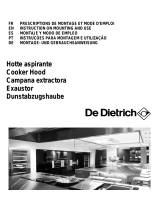
D F NL E
GB
P I GR
SAFEGUARDING THE ENVIRONMENT
1. Packing
The packing materials are 100% recyclable and are marked with
the recycling symbol . Comply with local regulations for
disposal. Packaging materials (plastic bags, polystyrene, etc.) can
be dangerous for children and should be kept well out of their
reach.
2. Product
This appliance is marked in compliance with European Directive
2002/96/EC on Waste Electrical and Electronic Equipment
(WEEE).
By ensuring that this appliance is scrapped suitably, you can help
prevent potentially damaging consequences for the environment
and health.
The symbol on the product or the accompanying
documentation indicates that this product should not be treated
as domestic waste but must be taken to a suitable collection
centre for the recycling of electrical and electronic equipment.
Disposal must be carried out in accordance with local
environmental regulations for waste disposal.
For further information on the treatment, recovery and recycling of
this appliance, contact your competent local authority, the collection
service for household waste or the shop where you purchased the
appliance.
PRECAUTIONS AND GENERAL
RECOMMENDATIONS
IMPORTANT!
• The appliance is not intended for use by young
children or persons with restricted physical, sensory or
mental abilities or without experience and knowledge
of the appliance, unless they are under the supervision
or instruction of a person responsible for their safety.
• Young children should be supervised to ensure that they
do not play with the appliance.
1. Do not connect the appliance to the mains power supply until
installation has been fully completed. Always disconnect the
hood before cleaning or carrying out maintenance by
unplugging it or switching off the power supply.
2. Do not “flambé” food under the hood. Naked flames could
cause a fire.
3. Do not leave pans unattended when frying. Cooking oil can
catch fire.
4. Regular cleaning and maintenance is essential to correct
functioning and good performance. Regularly remove dirt
deposits. Regularly clean or replace filters. Never use flammable
materials as hoses for extracted air.
5. If the hood is used together with other appliances operating on
gas or other fuels, the negative pressure in the room must not
exceed 4Pa (4 x 10
-5
bar). For this reason, make sure the room
is adequately ventilated.
6. Exhaust air must not be conveyed through the same flue used
by the heating system or other appliances powered by gas or
other fuels.
7. The room must be adequately ventilated when the hood is used
together with appliances powered by gas or other fuels.
8. Make sure lamps are cold before touching them.
9. The discharge air must not be ducted to a flue used for
removing fumes produced by appliances using gas or other
fuels, but must have a separate outlet. All national
regulations on air discharge must be observed.
10. The hood is not a shelf, therefore do not overload or place
objects on it
Note: Always wear work gloves for all installation and
maintenance operations.
Electrical connections
The mains power supply must correspond to the voltage
indicated on the appliance rating plate located inside the hood. If
provided with a plug, connect the hood to a power socket
complying with current regulations and located in an accessible
area. If it does not have a plug (direct connection to the power
supply) or if the socket is not in an accessible place, fit a suitable
double-pole switch that ensures complete disconnection from
the power supply in category III overvoltage conditions,
complying with the installation rules.
IMPORTANT: Before reconnecting the hood circuit to the
power supply and checking correct operation, always
make sure the power cable is correctly fitted and that it
was NOT crushed in its housing during installation.
Cleaning the hood
Warning! Failure to remove oil/grease (at least once a month) could
result in fire.
Use a soft cloth with a neutral detergent. Never use abrasive
substances or alcohol.
Before using the hood
To ensure best use of your hood, please read these instructions
carefully and keep them for future reference.
Packaging materials (plastic bags, polystyrene, etc.) can be
dangerous for children and should be kept well out of their
reach.
Make sure the hood has not been damaged during transport.
Declaration of conformity
This product has been designed, manufactured and sold in
conformity to the following standards:
- safety objectives of the “Low Voltage” Directive 2006/95/CE
(which replaces 73/23/CEE and subsequent amendments)
- protection requirements of “EMC” Directive 89/336/EEC
amended by Directive 93/68/EEC.
Troubleshooting guide
The hood does not work:
• Is the plug properly inserted in the power socket?
• Is there a power failure?
The hood is not extracting sufficiently:
• Is the right speed selected?
• Do the filters need cleaning or changing?
• Are the air outlets blocked?
The light does not work:
• Does the lamp need replacing?
• Is the lamp correctly fitted?
AFTER-SALES SERVICE
Before calling the After-Sales Service
1. Check to see if you can fix the problem yourself (see
“Troubleshooting Guide”).
2. Switch the hood off and then on again to check if the
problem has gone.
3. If the problem persists, contact the After-Sales Service.
Specify:
• the nature of the problem,
• the product model given on the dataplate inside the hood,
visible on removing the grease filters.
• your full address,
• your telephone number and area code.
• the Service code (the number under the word SERVICE on
the dataplate inside the hood, behind the grease filter).
If any repairs are necessary, contact an authorised Service Centre (to
ensure the use of original spare parts and correct repair).
Failure to comply with these instructions can compromise the
safety and quality of the product.
5019 300 01342





